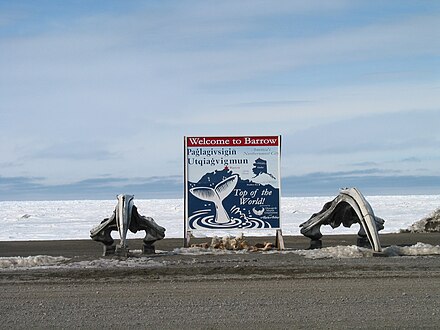"Arctic Sinkholes" is a recent NOVA documentary about the ongoing climate crisis. At the Yamal Peninsula in Siberia, gigantic craters have appeared, probably caused by methane explosions. I Alaska, new lakes have been formed due to leaking methane from the permafrost. We follow a research team to Esieh Lake to investigate the situation. The documentary also features Utqiagvik (formerly Barrow), the northernmost town in Alaska (and the United States), where the local Inuit already feel the effects of climate change. Whale meat can no longer be stored in permafrost cellars, and the coastline is eroding due to less ice protecting it against the sea. Future problems might be much, much worse...
Thawing permafrost might make it impossible to reach the global "climate goals", since enormous amounts of carbon dioxide and methane will be released into the atmosphere. The methane in particular is something of a dark horse. Although methane breaks down after only 12 years, its immidiate effect on climate change is more dramatic than that of CO-2. In the next 100 years, between 30% and 70% of surface permafrost might disappear, with essentially unknown consequences. Worse, at some places, such as Esieh Lake, fossil methane from layers *below* the permafrost is leaking, too!
"Arctic Sinkholes" lacks the proper apocalyptic feeling (which is interesting in itself), and some of the scientists even say that the sinkholes and leaking lakes are "exciting". Well, yeah, I suppose. Still, it´s clearly implied at several points that our models might be wrong...in a too optimistic direction.
Welcome to the Apocalypse.

Thank you! Would you like Ice with that drink?
ReplyDeleteMaybe the Ananda Marga dancer in another recent blog post of mine has a solution? And then, maybe not...
ReplyDeleteDada Sadananda appears to be a good person to know!
ReplyDeleteA dagger for the struggle, a skull for inertia
held apart in one's hands, while leaping for joy
someone saved the ritual from 5,000 BC.
Extraordinary!